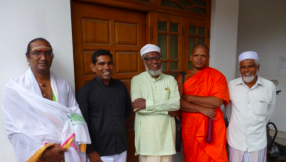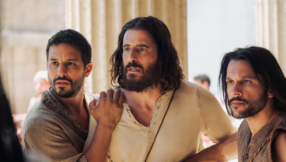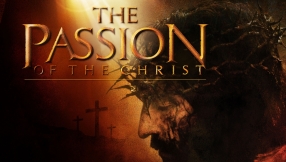Gordon Brown remains an enigma. On the one hand he is flawed, as he acknowledges, still, perhaps, bitter about his ally-turned-rival Tony Blair, and a touch hypocritical in portraying himself as a conviction politician having backed the misguided 2003 invasion of Iraq and other fatal New Labour tenets such as failing to regulate the City.
And yet, Brown also remains a titan of public life who towers above contemporary politicians in stature and capability, decent if angry, principled if occasionally wrong and, yes, a faithful Christian believer.
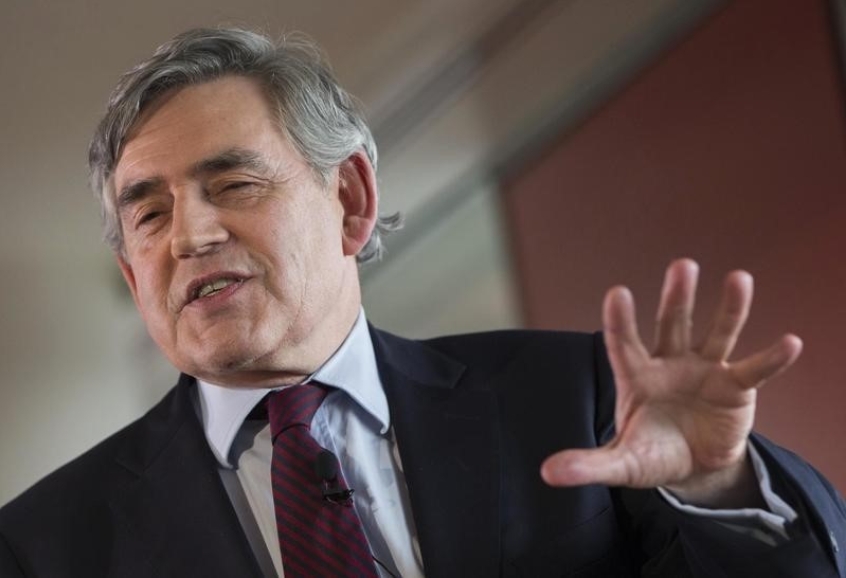
Reviewing the present political scene in demoralised Brexit Britain, voters who took in the media frenzy against Brown during his all-too-brief time as prime minister (2007-2010), a period which began with a moral flurry of moves such as banning super-casinos and then saw Brown rescue the country from the banking crisis, could be forgiven for thinking: be careful what you wish for. And the former PM could be forgiven for recalling the former US President's words on departure to the press: 'You won't have Nixon to kick around any more.'
But now Brown is back, and has opened up for the first time about the 'strong personal religious beliefs' which he says he should have been 'more open' about while an MP, Chancellor and Prime Minister – and warned against driving religion out of the public and political spheres.
Writing in his new book My Life, Our Times, Brown talks about his upbringing as the son of a Church of Scotland minister and of helping to build what he thinks 'millions today yearn for – a better, fairer and more compassionate country truer to its best hopes and ideals'.
He reveals his father taught him to 'treat everyone equally – subservient to no one and condescending to no one'.
In an entire chapter devoted to the broad subject of religion, entitled 'Faith in The Public Square?', Brown writes: 'I have often asked myself: in the absence of references to our religion and religious tradition – and the language we have inherited from it that infuses our debates – in what terms can a political leader or any public figure today make reference to shared moral values? Some who fear religious dogmatism would exclude all religious arguments from the public square, but might the better way forward not be, as Rowan Williams suggests, greater clarity about their proper place?
'For are we not impoverished as a society if the public square is emptied of such a discourse that insists on a generosity of spirit and our mutual obligations for each other's welfare?
'More personally, how can a public figure who holds convictions that are religious in origin be authentic if we do not state what influences what we say and where we are coming from? A religious conviction cannot be equated with a private preference, such as a liking for sports or a taste in food or music: it is something that shapes your life, public as well as private. The public demands authenticity from our politicians – for us to reveal who we are and what makes us tick.'
Admittedly, this is where Brown veers into self-justification and drawing subtle contrasts with his rivals within and without his own party: Blair and David Cameron, the Tory opposition leader who succeeded him as prime minister (both, incidentally, also Christian believers).
'No political leader can survive for long if people think of him or her as false, as a PR creation, as an invention of a focus group,' Brown goes on.
'To expect those of us with strong beliefs to leave them at the door of the House of Commons or No 10 is to require us to bring an incomplete version of ourselves into the public arena. If the values that matter most to me are the values that I speak about least, then I am, at least in part, in denial of who I really am.'
Here Brown, not for the first time, expresses regret at allowing others to shape how he was seen. 'This was, to my regret, a problem that I never really resolved. I suspect I was thought of as more like a technician lacking solid convictions. And despite my strong personal religious beliefs, I never really countered that impression. Instead of defining myself, I gave my opponents room to define me.'
Then Brown returns to the role of faith in public life. In extracts released on the same day that the former Liberal Democrat leader and evengelical Christian Tim Farron outlines why he believes Christians are frowned on at Westminster and beyond, Brown says: 'Of course, there are limits to the role of religious arguments in the public square. We should not forget the lessons of history: in the name of religion and out of a dogmatic insistence that a theocratic view must prevail, bombs have been dropped; wars have been waged; human beings have been despised, humiliated and tortured; blacks, women and LGBT people have been reviled, ostracised and persecuted – and still are...Being religious – or being from 'our' religious tradition – should not give any politician a privileged position or a get-out clause that allows them to ignore the accepted bases of authority: logic, scientific fact, experimental test, critical evaluation and an appeal to values we share in common.
'Indeed, people of faith have a duty to use the same tools of reasoning that a person of no faith would use, and to invoke reasons that can be understood and explained at the bar of public opinion, framing their arguments about values in such a way as to include rather than alienate those who do not share their position.'
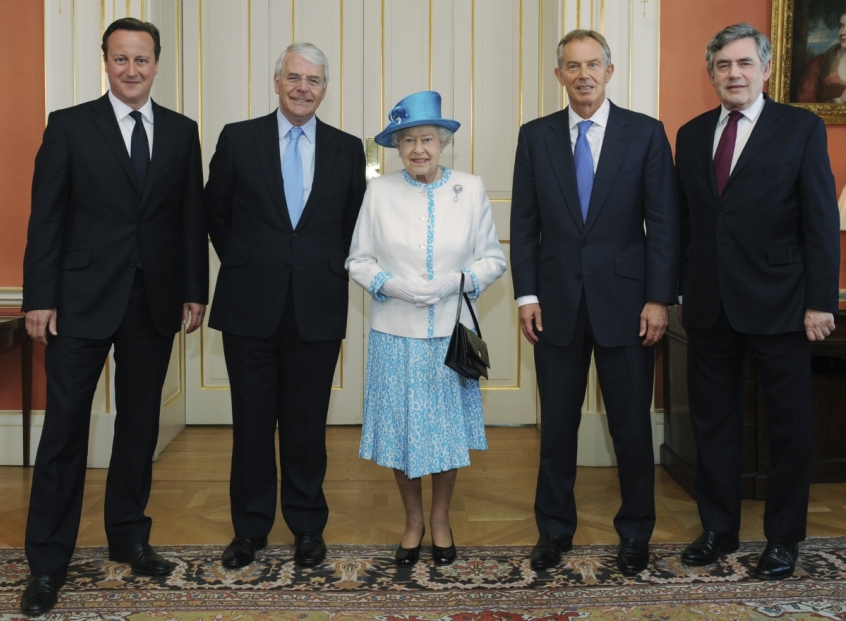
Brown warns against those who might use faith in a partisan way, writing: '...Indeed, any public figure who introduces faith into debate must be sure they are not exploiting it for partisan reasons: deploying dogma to short-circuit democratic debate. To invoke God as if He favoured one side over the other, or to suggest your interpretation of faith must be the last word, or to play religion as some sort of trump card, to use religion cynically for political gain, is to make a mockery of the very idea of God and religion. So I would repudiate both those who say "Do this because my religion demands it" and those who say "Vote for me because I'm a Christian".
'We must never make God a partisan figure, never claim that theology is the beginning and end of any debate, never act as if any kind of theocracy overrules democracy, and have the humility that Abraham Lincoln had: not to claim that God is on our side but to hope, as he did, that we are on God's side.'
However, he goes on to warns equally against those who seek to drive faith out of public discussion and calls on the public to accept such a 'conversation'. He writes: '...while religious engagement within the public square must accommodate itself to public reason, public reason must also be willing to accommodate itself to religious engagement. A liberal state is not truly liberal unless it makes room for a conversation amongst believers and between them and non- believers. The question is: what are the shared terms and common ground that will allow for this?'
And Brown, who several times referred to his 'moral compass' while in office, explains: 'I have come to the view that politicians do have a role in encouraging the cooperative and altruistic instincts that are part of our moral sense, in discouraging the competitive and appetitive parts when they can damage our communities, and in demonstrating that the rights we have and the responsibilities we owe each other go hand in hand.
'This is not to say that politicians should moralise, hector or sanctimoniously lecture people. It is arrogant for politicians to presume some superior moral authority that allows them to tell people what their morality should be. However, there is a big difference between foisting your moral stance on others even when they do not agree with it and appealing to an agreed morality that underpins our society.
'But perhaps I did not get it quite right in repeating as a politician a phrase that my father had often used as a church minister – the need for a "moral compass". I was most definitely not seeking to claim a role for myself as an ethical arbiter: I was simply arguing the case for the role of ethics in politics. The distinction I should have made more clearly is between patently dogmatic attempts to impose your will on others – which are wrong – and focusing public attention on values we share.'
In the same chapter, Brown then rightly condemns the binary and at times 'menacing' atmosphere created by social media such as Twitter. 'Of course, the public square today is mediated not just by print and TV journalism, but also by Twitter, Facebook, Instagram and the explosion of social media. In both traditional and digital media, we have seen in my view a coarsening of public debate. All too often, the public square resounds with voices that are harsh and discordant, frivolous, or at times even menacing.'
And he concludes that he should have been 'more open' about his religious and moral beliefs. 'But while all my experience tells me that we have to be careful when we carry religious or even moral arguments into public decision making, I believe, as I look back at the debates we had when I was an MP, chancellor and prime minister, that I should have been more open about my beliefs, more upfront in dealing with the difficulties of doing so, and more willing to take potential criticisms head-on. In the end, the choices in our public square should not be reduced to a theocratic and unacceptable dogmatism on the one hand and a joyless and barren secularism on the other.
'A more ethical politics can introduce an essential moral dimension into the biggest of issues, make for a far healthier and more robust national conversation, and help build what I think millions today yearn for – a better, fairer and more compassionate Britain truer to its best hopes and ideals.'
Brown was indeed unspun, and he is surely right that he should have opened up more about who he was while in politics. And that includes what we now know to be his strong Christian faith.











